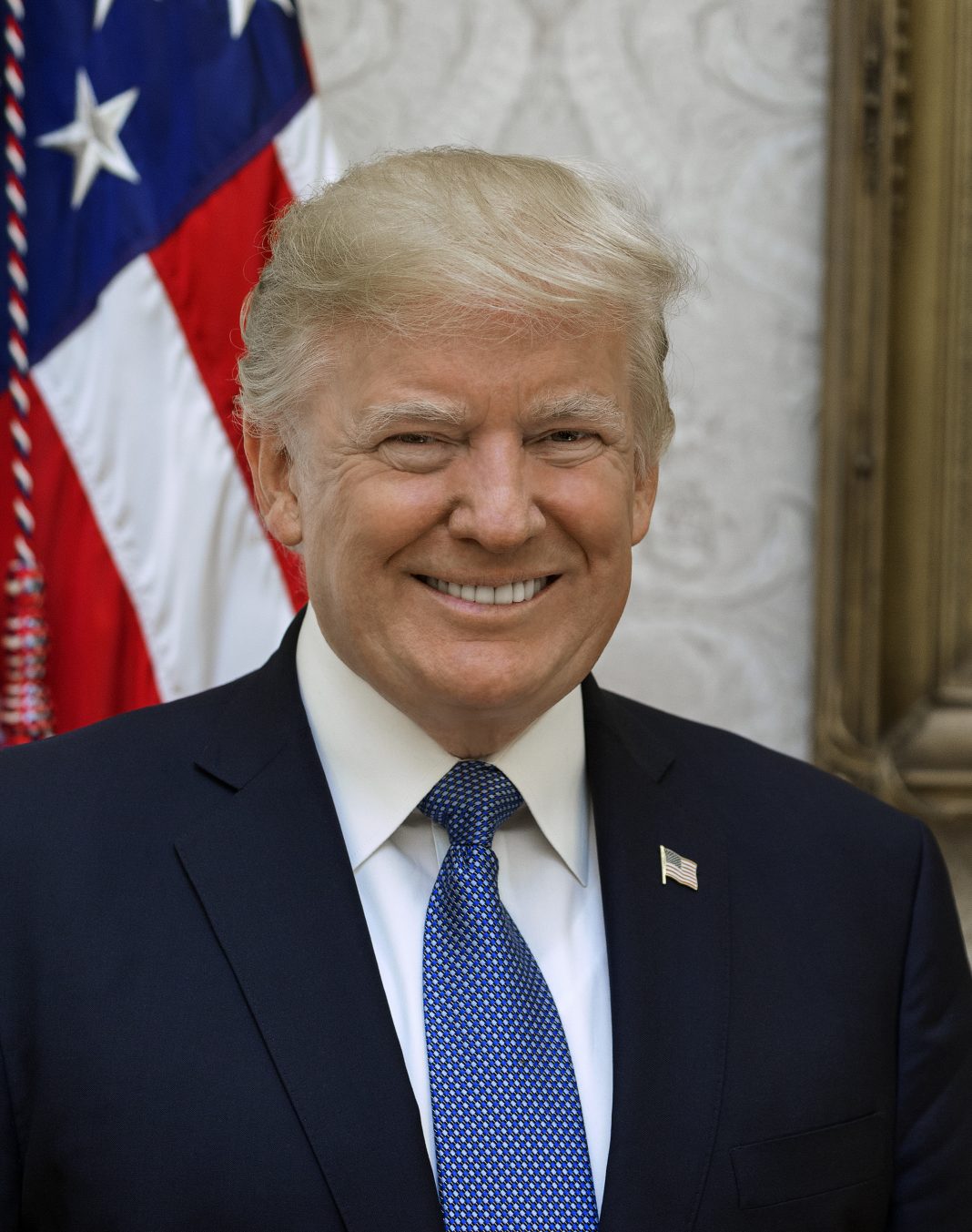***The Iowa Standard is an independent media voice. We rely on the financial support of our readers to exist. Please consider a one-time sign of support or becoming a monthly supporter at $5, $10/month - whatever you think we're worth! If you’ve ever used the phrase “Fake News” — now YOU can actually DO something about it! You can also support us on PayPal at [email protected] or Venmo at Iowa-Standard-2018 or through the mail at:
PO Box 112
Sioux Center, IA 51250
Secured historic trade deals to defend American workers.
- Immediately withdrew from the job-killing Trans-Pacific Partnership (TPP).
- Ended the North American Free Trade Agreement (NAFTA), and replaced it with the brand new United States-Mexico-Canada Agreement (USMCA).
- The USMCA contains powerful new protections for American manufacturers, auto-makers, farmers, dairy producers, and workers.
- The USMCA is expected to generate over $68 billion in economic activity and potentially create over 550,000 new jobs over ten years.
- Signed an executive order making it government policy to Buy American and Hire American, and took action to stop the outsourcing of jobs overseas.
- Negotiated with Japan to slash tariffs and open its market to $7 billion in American agricultural products and ended its ban on potatoes and lamb.
- Over 90 percent of American agricultural exports to Japan now receive preferential treatment, and most are duty-free.
- Negotiated another deal with Japan to boost $40 billion worth of digital trade.
- Renegotiated the United States-Korea Free Trade Agreement, doubling the cap on imports of American vehicles and extending the American light truck tariff.
- Reached a written, fully-enforceable Phase One trade agreement with China on confronting pirated and counterfeit goods, and the protection of American ideas, trade secrets, patents, and trademarks.
- China agreed to purchase an additional $200 billion worth of United States exports and opened market access for over 4,000 American facilities to exports while all tariffs remained in effect.
- Achieved a mutual agreement with the European Union (EU) that addresses unfair trade practices and increases duty-free exports by 180 percent to $420 million.
- Secured a pledge from the EU to eliminate tariffs on American lobster – the first United States-European Union negotiated tariff reduction in over 20 years.
- Scored a historic victory by overhauling the Universal Postal Union, whose outdated policies were undermining American workers and interests.
- Engaged extensively with trade partners like the EU and Japan to advance reforms to the World Trade Organization (WTO).
- Issued a first-ever comprehensive report on the WTO Appellate Body’s failures to comply with WTO rules and interpret WTO agreements as written.
- Blocked nominees to the WTO’s Appellate Body until WTO Members recognize and address longstanding issues with Appellate Body activism.
- Submitted 5 papers to the WTO Committee on Agriculture to improve Members’ understanding of how trade policies are implemented, highlight areas for improved transparency, and encourage members to maintain up-to-date notifications on market access and domestic support.
Took strong actions to confront unfair trade practices and put America First.
- Imposed tariffs on hundreds of billions worth of Chinese goods to protect American jobs and stop China’s abuses under Section 232 of the Trade Expansion Act of 1962 and Section 301 of the Trade Act of 1974.
- Directed an all-of-government effort to halt and punish efforts by the Communist Party of China to steal and profit from American innovations and intellectual property.
- Imposed tariffs on foreign aluminum and foreign steel to protect our vital industries and support our national security.
- Approved tariffs on $1.8 billion in imports of washing machines and $8.5 billion in imports of solar panels.
- Blocked illegal timber imports from Peru.
- Took action against France for its digital services tax that unfairly targets American technology companies.
- Launched investigations into digital services taxes that have been proposed or adopted by 10 other countries.
Historic support for American farmers.
- Successfully negotiated more than 50 agreements with countries around the world to increase foreign market access and boost exports of American agriculture products, supporting more than 1 million American jobs.
- Authorized $28 billion in aid for farmers who have been subjected to unfair trade practices – fully funded by the tariffs paid by China.
- China lifted its ban on poultry, opened its market to beef, and agreed to purchase at least $80 billion of American agricultural products in the next two years.
- The European Union agreed to increase beef imports by 180 percent and opened up its market to more imports of soybeans.
- South Korea lifted its ban on American poultry and eggs, and agreed to provide market access for record exports of American rice.
- Argentina lifted its ban on American pork.
- Brazil agreed to increase wheat imports by $180 million a year and raised its quotas for purchases of United States ethanol.
- Guatemala and Tunisia opened up their markets to American eggs.
- Won tariff exemptions in Ecuador for wheat and soybeans.
- Suspended $817 million in trade preferences for Thailand under the Generalized System of Preferences (GSP) program due to its failure to adequately provide reasonable market access for American pork products.
- The amount of food stamps redeemed at farmers markets increased from $1.4 million in May 2020 to $1.75 million in September 2020 – a 50 percent increase over last year.
- Rapidly deployed the Coronavirus Food Assistance Program, which provided $30 billion in support to farmers and ranchers facing decreased prices and market disruption when COVID-19 impacted the food supply chain.
- Authorized more than $6 billion for the Farmers to Families Food Box program, which delivered over 128 million boxes of locally sourced, produce, meat, and dairy products to charity and faith-based organizations nationwide.
- Delegated authorities via the Defense Production Act to protect breaks in the American food supply chain as a result of COVID-19.
















